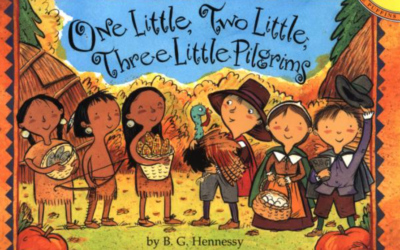Written by Katie Pistilli
Would you ever go to a doctor or physician of any kind, whose practice doesn’t value and implement current research and scientific evidence? My guess is, you probably wouldn’t. Our health and wellbeing is important and we want to be confident that our doctors, therapists, psychologists, etc are well-informed and guiding us with the most up-to-date medical advice.
This is called evidence based-practice. It’s a universal value among professionals. By using evidence-based practice, the clinician is ensuring they are implementing interventions that are proven by research to be effective towards targeted goals of the patient. Without it, professionals would be simply following their intuition based on their own experience. While there is value in personal experience, it is essential to implement practice that is backed by research.
How does this apply to Music Therapy?
Evidence-Based Practice is one of many factors that make music therapists professional clinicians and is an essential pillar of the music therapy profession. In fact, it’s front-and-center in its definition:
“Music Therapy is the clinical and evidence-based use of music interventions to accomplish individualized goals within a therapeutic relationship by a credentialed professional who has completed an approved music therapy program.” – The American Music Therapy Association
Like other professions, the work done by music therapists is based on scientific research and proven results. As music therapists, we stay up to date with trusted publications for new information and research. One is called The Journal of Music Therapy, another is Music Therapist Perspectives.
How do we use evidence-based practice?
As it applies to music therapy, we use evidence-based practice to create a treatment plan for our clients. This comes after an initial assessment is completed and recommendations are made for treatment.
As part of the plan, specific goals will be identified. Once they are, the therapist should then seek out research and interventions that are proven to be effective in accomplishing that specific goal.
The therapist may consider these questions:
- What are my client’s goals?
- What are their areas of need that may hinder them from achieving those goals (diagnosis, abilities)?
- What are my resources (instruments, space)?
- How can I adapt this research for my client’s interests and age?
Here’s an example. Say a music therapist is working with a child to maintain grasp in their hands. In music therapy, we utilize instrument playing to the beat of the music in order to address these kinds of goals. The anticipatory nature of rhythm and song can truly assist an individual learning functional movement such as grasp, or even walking. The technical term for this evidence-based technique is rhythmic entrainment.
A similar concept applies for individuals working on fluency in their speech. Perhaps they have a hard time speaking a full sentence and have to pause or repeat words often. Through evidence-based music therapy techniques such as Rhythmic Speech Cuing or Therapeutic Singing, the therapist uses natural musical element such as melody and rhythm to address their client’s goal area.
Why is it Important?
Utilizing Evidence-Based Practice is an ethical matter. If a therapist begins to implement treatment without it, there is always the potential for harm. As a field that continues to strive for licensure and recognition at the state level, it is essential that music therapists maintain this professional competency. Not only does evidence-based practice ensure the most ethical and effective treatment for our clients, but it supports the validity of our profession as it becomes more respected and recognized.
For more information regarding the use of research in the music therapy profession CLICK HERE.
The post What is Evidence-Based Practice was first published on Upstate Music Therapy Center.
Check Out More of Our Blogs!
Book: My Many Colored Days
Blog post and original recording by Kayla Davitt, MT-BC Do you ever feel like your emotions can be all over the place? You might feel excited after receiving a compliment, but sad the next due to a loss or disappointment; anxious at what this year may bring, or...
Book: The 12 Days of Christmas
Blog post submitted by Kayla Davitt, MT-BC When someone asks you about your favorite Christmas or holiday song, what is the first song that comes to mind? “Silent Night?” “O Little Town of Bethlehem?” “Winter Wonderland?” “Rudolph the Red-Nosed Reindeer?” If you were...
Book: One Little, Two Little, Three Little Pilgrims
Blog post by Kayla Davitt, MT-BC Song performed and recorded by Kayla Davitt, MT-BC It’s that time of year where families are supposed to be gathering together at table, sharing food and laughter, and relaxing within the company of loved ones. For most of us,...





I have been engaged in Listening Therapy, a music based intervention following my Traumatic Brain Injury.
I’m wondering whether the evidence based research has included the ground breaking work done by Dr. Stephen Porges and Dr. Alfred Tomatis?
I describe the therapy I have used in a series of blog posts titled Tiniest Muscle With Real Pull found at LivingInGodsPocket.wordpress.com.